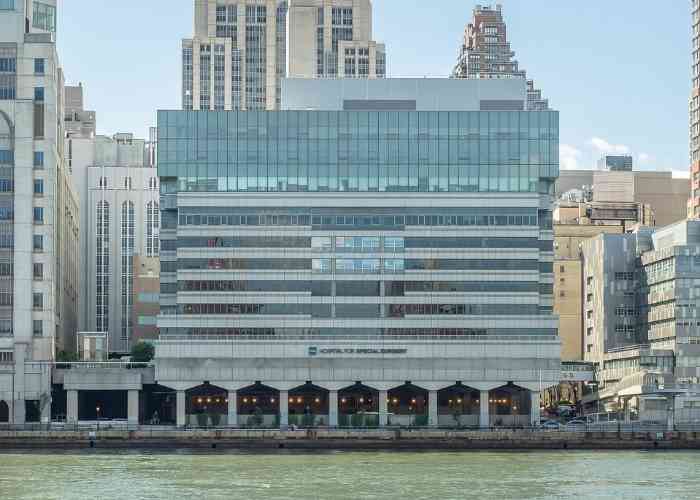What is an anterior cruciate ligament injury?
Within the knee, there are four elastic bands (ligaments) that limit forward and backward movement of the tibia (shin bone) and provide stability to the knee joint. The anterior cruciate ligament (ACL) is commonly injured among athletes by stretching the ligament beyond its limits. ACL reconstruction is a surgical technique to reconstruct the damaged ligament by fastening a tendon graft where the native ACL resides.
How does ACL reconstruction fail?
Approximately 10% of ACL reconstruction cases fail, resulting in another tear of the anterior cruciate ligament. There are a number of reasons to cause an ACL reconstruction to fail, including:
- Technical issues: ACL reconstruction is not likely to fail when completed by a surgeon who is well-versed in the procedure. However, the majority of these surgeries are completed by surgeons who perform ten (10) or fewer ACL reconstructions each year. Dr. Allen performs several hundred ACL Reconstructions a year and has an extremely low revision rate.
- Lower extremity malalignment: When the lower extremities are not aligned, the knees experience uneven stress loads causing the ligament to tear again.
- Traumatic re-injury: Commonly seen among athletes, the ACL tendon graft can be torn when a blunt force trauma is sustained directly on the knee.
- Biologic issues: Studies have shown that patients under the age of 25 that received a tendon graft from a donor (allograft) have an increased risk of ACL reconstruction failure. A tendon graft can also have unnoticeable tearing that raises the risk of future ACL reconstruction failure. Patients who returned to sports-related activities too quickly or have compromised immune systems are at a greater risk to experience an ACL reconstruction failure.
Dr. Answorth A. Allen, orthopedic knee surgeon, treats patients in Manhattan, New York City, Westchester, Long Island and surrounding areas who have experienced another ACL injury and are in need of a revision ACL reconstruction.
How is revision ACL reconstruction performed?
The first, and most important, step in a revision ACL reconstruction is identifying the etiology of the failed primary ACL reconstruction. If the tunnels within the femur (thigh bone) and tibia have considerably expanded, then this operation is completed in two stages. If these tunnels are clear, or the patient has not experienced bone loss since the first procedure, then the revision can be completed in one stage.
In a two-stage revision ACL reconstruction, Dr. Allen harvests a bone graft from the iliac crest of the patient (autograft) or donor (allograft) and it is used to fill in the existing tunnels of the femur and tibia. The patient must then wait 4-6 months to allow the bone graft to be successfully incorporated. After this waiting period, the patient undergoes the second stage of the revision similar to a primary ACL reconstruction.
What is the recovery period like after revision ACL reconstruction?
The recovery period following an ACL reconstruction is dependent upon whether the revision ACL reconstruction was completed in one or two stages. Most patients can expect to return to normal daily activities in 3-4 months and athletic/sports-related activities in approximately 9-12 months. A successful recovery is also determined by a patient’s willingness to follow the post-operative care instructions provided by Dr. Allen. Patients in New York can generally expect the following:
- Full weight-bearing on crutches to minimize the stress upon the ACL tendon graft.
- A functional knee brace will be worn for a length of time designated by Dr. Allen, typically 4-6 weeks.
- A combination of rest, ice, and non-steroidal anti-inflammatory medications is encouraged for pain management. Dr. Allen will prescribe pain medication to be taken as directed.
- An individualized physical rehabilitation program will be tailored to the patient after a post-operative evaluation by Dr. Allen. The physical therapy program is generally 50% slower for a revision than for a first-time ACL reconstruction. To successfully restore strength, range of motion, and mobility of the knee, it is essential to adhere to and complete the physical therapy program designed by Dr. Allen.
Revision ACL Surgeon

Have you had a recent ACL reconstruction procedure that failed? ACL reconstruction can fail for a number of reasons, including re-injury, misalignment of the leg, or biologic issues. In many cases, revision surgery can be performed to repair the ACL and restore function to the knee. Complex orthopedic knee surgeon Doctor Answorth Allen provides diagnosis and treatment for patients in Manhattan, New York City, Westchester, Long Island and surrounding areas who have experienced a failed ACL reconstruction. Contact Dr. Allen's team today!






